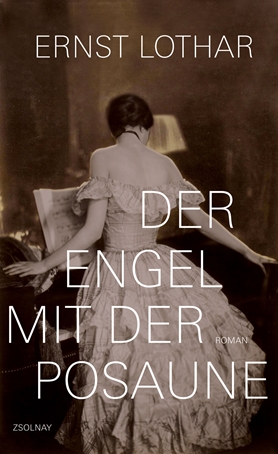»Vienna’s very own Downtown Abbey.« Vanity Fair
From Crown Prince Rudolf’s suicide through the First World War all the way to the »Anschluss«, Ernst Lothar gives us an epochal portrait of Austria, a nation in decline, reflected in the fate of beautiful Henriette.
Central Vienna: a chubby-cheeked stone angel blowing a trumpet soars resplendent above the portico of 10 Seilerstätte. Behind the elegant baroque façade resides the Alt family — an extended dynasty of piano-makers whose rise and fall Ernst Lothar describes in this epochal family saga.
All Vienna knows that the inhabitant of number 10 Seilerstatte is none other than Christopher Alt, piano maker, the best in Vienna, probably in all of Austria, and possiblly the world over. His piano keys have given life to melodies by Mozart, Haydn, Beethoven, and many more. On his deathbed, moved by the wish to keep his children united, he leaves a will specifying that his descendants, if they are to get their inheritance, must live together in the family home.
Over successive generations of the Alt family, history itself passes through the doors, down the halls, and into the private rooms of the Alt’s building. There is intrigue at the court of Franz-Josef: an heir to the throne has fallen in love with Henrietta Alt, who will have to carry the guilt for his eventual suicide. There are betrayals, beloved illegitimate children, and despised legitimate offspring. There are seething passions and icy relations, a world war and the rise of Nazism to contend with. There are duals, ambitions, hopes, affairs of the heart and affairs of state. Three generations of Alts live and die at number 10 Silerstatte and each member of the family, in his or or her own way, is a privileged witness to the winds of change and a Europe at the height of both its splendor and decadence
Lothar wrote this panoramic Habsburgian saga in American exile. Capturing a pivotal period of world history by describing its effect on a well-established, influential family, his virtuoso tale spans half a century and three generations.
The novel’s central protagonist is Henriette Alt, née Stein, who at twenty became Crown Prince Rudolf’s mistress and at seventy fell victim to Hitler’s Gestapo. Between the »goodly« and the »difficult« children, amidst family intrigue and political cataclysm, she stands as an allegory of end times – and hope against all odds.
A wonderful rediscovery – and an international bestseller.
